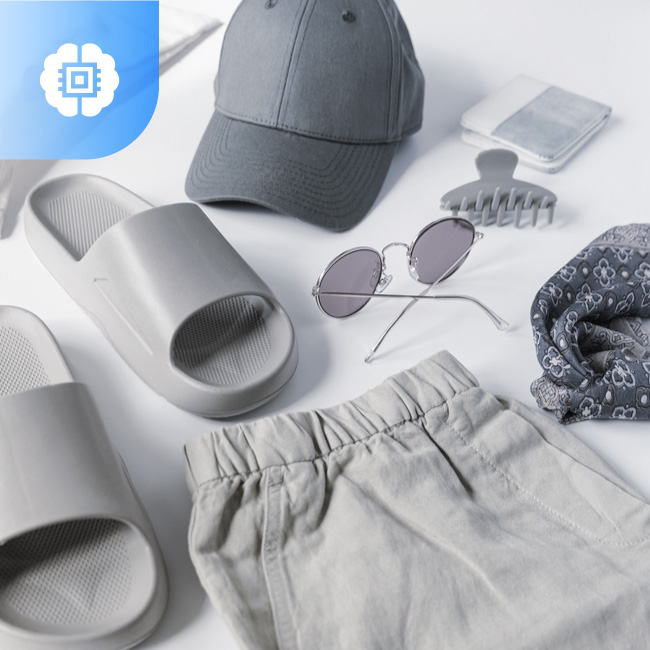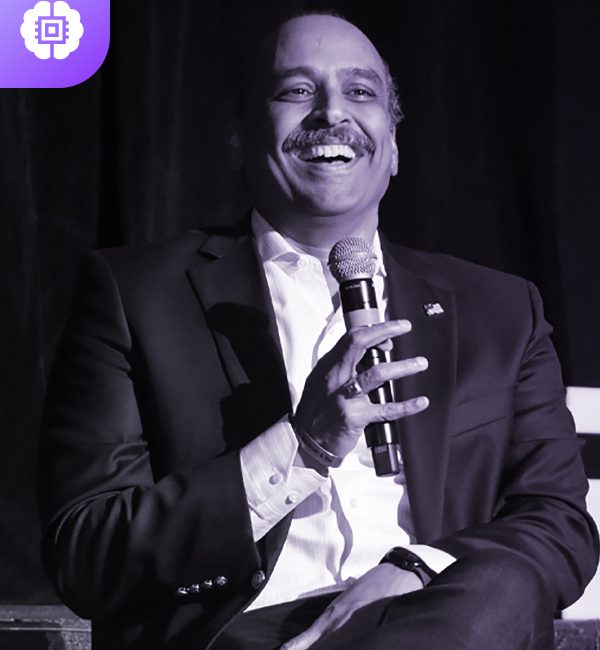
Demystifiying Omnichannel Retail With Eagle Eye
About this Podcast:
Meet Miya Knights, Head of Industry Insights at Eagle eye and a SUPER influential voice in global retail. Miya has over 18 years of experience as an analyst, journalist and editor specialising in enterprise technology use in retail. Miya spent most of their career reporting on the demands and challenges faced by retailers and how technologies can best support their needs in addressing complex consumer expectations and behaviours. Her newest books “Omnichannel Retail: How to build winning stores in a digital world” and “Amazon: How the world’s most relentless retailer will continue to revolutionize commerce” are currently listed as #1 and #5 books of 2019 by Book Authority.
Episode Transcript:
Akshara Subramanian
Hi guys. Welcome to a new episode of The Retail Podcast by Vue.ai. I'm Akshara and I head Customer Marketing and Growth at Vue.ai. Today, we'd love to welcome Miya Knights the Head of Industry Insight at Eagle Eye and an influential voice in global retail. Maya has over 18 years of experience as an analyst, a journalist and an editor specializing in enterprise technology use in retail. She's actually spent most of her career reporting on the demands and challenges faced by retailers and how technologies can best support their needs in addressing complex consumer expectations and behaviors. Welcome Miya, we're so glad that you could join us on the podcast!
Miya KnightThank you so much Akshara. I'm really pleased to be with you here today. Thanks.
Akshara Subramanian
Great. And first off I'd actually like to say congratulations! You know I just saw on Twitter that both your books 'Omnichannel Retail' and 'Amazon' currently listed as the number 1 and the number 5 books’ of 2019 by Book Authority. That's incredible. I'm sure you must be thrilled. Tell us what interested you about these topics?
Miya KnightAbsolutely! I think one is still number 1 and one is still number 5. These things move so quickly but yeah definitely the two books have attracted a lot of attention. They came pretty hot on the heels of each other. 'Amazon' was released in January and 'Omnichannel Retail' was released in April. I did not write them together. I wrote them again very close to each other and I think the main reason behind wanting to write the books was - the first one ‘Amazon’ really came out of the time I spent over the last three or four years working as a Research Analyst and Global Technology Research Director at Planet Retail. Essentially we as analysts looking at the retail industry from a market research perspective were being asked every single day by retailers and brands. And in my case as well as technology suppliers serving these sectors about Amazon - 'What do I do about Amazon? How do I improve my probability rating which is what that means?'. And so I and a former colleague of mine from Planet Retail who is Global Industry Research Director at the time, Natalie Berg decided to sit down and write a book that hopefully tries to answer some of the questions that businesses that have to either operate with or compete against Amazon, want answers to some questions that they want answers to. Hot on the heels off of that We realized that you know Amazon is at an inflection point in its history where it's actually almost reaching a bit of a glass ceiling online. And now actually to move offline. Hence, the acquisition of Whole Foods which happened about three weeks after we had the book approved for you know to go ahead and write it by the publisher. So we knew we were onto a good thing. We knew we our strategic view of Amazon's direction was pretty much right. But after having written that book it left me asking where does that leave stores. If Amazon actually wants to move offline. Does that put the role that the store based physical sales channel has to play in today's retail channel mix in a different light. And so I ended up co writing a book with the subtitle 'How to Build Winning Stores in a Digital World' with the CEO of my current company Eagle Eye, Tim Mason. And Tim knows a thing or two about running stores because he used to be Deputy CEO of Tesco and he also knows about how to win and retain customers as part of his role at Tesco. He launched the loyalty scheme Club Card which is still one of the largest loyalty schemes in the world. So having looked at the online to offline world omni channel retail with Amazon kind of looks at the offline to online world. Their two sides of the same coin really.
Akshara Subramanian
Right. And can you tell me a little bit about the highlights of the Amazon book. You just actually pointed out that it was for retailers who was sort of going up against Amazon. So what are some of the highlights that you talk about in that book that's important for retailers today.
Miya KnightWhen I get asked about Amazon the very first thing I always point to is like for like comparisons with Amazon aren't necessarily fair or correct. Natalie, my co-author and I concluded that Amazon is actually a technology company first and a retailer second. And I think to the retailers reading the book wanting to know about Amazon, that does not necessarily mean that it doesn't mitigate or negate the need to compete with and also potentially work with Amazon but it does put their skillset and their expertise in a different context; a context where hopefully retailers can understand that there are the merchant curation smarts that they take for granted as core to their business that now need married the smarts that they could actually learn from and use from Amazon.
Akshara Subramanian
Yeah absolutely. And my we're looking at you know try before you buy, buy online and pick up store, best curated in-store experiences that completely transform people from their typical shopping environment or different world like - Story, Forty Five Ten and a couple of other companies have really tried to make an effort to create these experiences are what we call experiential retail today. So what kind of store concept do you see sort of shaping up in the next couple of years?
Miya KnightI think store concepts that are being developed and will be developed in the next couple of years will definitely center on experience as you say. But I think retail is a right to be wary of store concepts that are gimmicky. I think any new concept has to fit with the existing business model. It has to provide a seamless experience and that's part of I think this whole trend towards talking about experiential retail. I think we've got to fold into that, the painful friction points of retail and that by removing those from the store experience you make the overall customer experience a net positive as opposed to net negative. I remember back to the concept store that Levis launched with Pointer as an example as it was a pop up it was a concept, so I don't think... it doesn't exist anymore but you could see how Levis was experimenting with a store when there was no inventory on the shop floor except for samples in one standard size. The inventory was all in the back room. It made for a much brighter area, spacious store where assistants could consult with customers. I think human interaction and experiences have to be very, very important in the store concepts of the future. From an experience perspective but you would go in choose your pair of jeans and order up a sample to try on and the sample would drop through a chute in the dressing room once you'd arrive to try it on so you can see how that kind of a store concept benefited Levi's from a business model perspective so it could run perhaps a leaner inventory in the back of that store but also benefited the customer experience in terms of making for a much less pressured sales environment, a much more pleasant spacious environment with room to breathe and room to browse. Other store concepts I think are going to use technology to really bring products to life. I think Story is a great example that you've already cited but really I would advocate over all that retailers look at how to use technology to smooth the customer experience. Make sure that they the customer is focused on enjoying, trying, experiencing the goods rather than paying for the goods, obtaining the goods, finding the goods. exposing store inventory online so that I can browse your inventory before I come into the store Making an appointment if I need some consultation so that I don't have to wait to find a member of staff once I make a visit. Incentivizing me to make that visit with a promotion and then smoothing the sales process by allowing me to maybe pay scan and pay on my own mobile and leave. Obviously none of these ideas are going suit every single sector. Scan and pay is going to be more popular in grocery for example but in time I might want to engage via my mobile to see inspiration in a fashion retailer for example. So I know that there's been a lot of work done by RFID enabling garments whether it's the garments themselves or the hangers and then linking that to digital screens. I think a further step should be to link that to my mobile phone if I want to pull that content down to my mobile phone rather than wait in a line to access digital signage to see how this looked on the catwalk or how this might be merchandise to me via my own personal preferences I might want to do that through the mobile phone. So there's lots of things I think the main points are to link it back to online and use the mobile wherever possible to join up the online journey to the offline journey and increase the amount of utility and relevance and speed and convenience you bring into the store experience from a digital standpoint.
Akshara Subramanian
You know you talked about Levis. Do you have any other sort of brands that you've seen kind of do this well?
Miya KnightSo Burberry is a well-known one that's been doing this for a while, their flagship store in London was the first place I saw these RFID enabled hangers and I know a lot of other luxury fashion retailers have taken on board a similar approach to merchandising to digitally extend their merchandising in that way. Another clever example was a trial of beacons in mannequins that allowed customers to again see more merchandising suggestions and recommendations when their mobile phones were enabled, when they passed a relevant mannequin. Off the top of my head in fashion, I think what I'm seeing generally are retailers that are looking to use the art of digital as it were to bring the products and clothes that they're selling to life in the store. Maybe also extend some of the digital content that they developed for online into the store and make that content work harder. From an online to offline standpoint, specific names at the moment escape me but I know I've cited a couple there that I've been around for a while and I know that there are others that have copied those approaches as well.
Akshara Subramanian
You talked a lot about experience Miya. So in this age of experiential retail and the fact that consumer needs are constantly evolving. What is that perfect mix of omni-channel for brands to understand their customers better or is there a perfect mix at all?
Miya KnightI think there's a perfect mix from sector to sector and then that's individual from retailer to retailer. I think that perfect mix has to truly reflect the mix of channels that your customer is using. So if your customer is doing 90 percent of their browsing online and doing the final sort of discovery and purchase phases of their shopping journey in stores, I would make sure that the search browse and discovery phases of that journey are well catered to online and that the discovery and purchase phases are even better catered to in-store and to specifically focus on joining up the discovery and purchase phases online to the store. I really think retailers need to use the digital breadcrumbs that consumers leave as well as those elements of their personal information that they knowingly share with retailers to understand their reach, their customers shopping journeys better and tailor their total offer accordingly. I think that is very much the case for fashion retailers in the sense that the shift has been very much to online with the final phases being in the store. We talk a lot about omni-channel retail for example how to combat show-rooming where the customer is trying the products on in your store but then doing a price comparison before they go leave the store and buy it from your cheapest competitor online. I think there's something to be said for trying to save the sale. I think again human interaction is going to be absolutely key for that. Having a well-trained store associate who's able to say this looks great on you, have you thought about adding this, that's maybe armed with a mobile device so that they can take that payment there and then because from the moment you leave the changing room to the moment you join the end of the queue to the moment you actually were asked if you could change your mind.
Akshara Subramanian
Absolutely. I think it's happened to all of us.
Miya KnightYeah exactly. So equally why not if they do end up changing their mind incentivize them to still save the sale by getting them to buy something in store or reserving to collect it in store. I think the root of omni-channel comes from the fact that customers are channel blind and I think retailers really have to start operating in a similar way that takes account of the fact that I might start my journey online. But what to end in store but that might that might be a halfway point for me. Once I'm in your store I might decide I want to extend that journey back into my own home and retailers have to be able to try and capture and infer the purchase intent and react to it appropriately with a relevant offer regardless of the channel. Digitally, using digital influence I suppose to be able to join up that view of my journey from online tools line and back again. For grocery, I just quickly say you know I think by contrast that a lot of people will see a lot of consumers still want to touch and feel their fresh produce for example so maybe that the browsing and discovery phases of a typical food shopping journey take place more often than not in a store rather than online. And so I think the channel mix in terms of how you'll enabling that shopping journey how you're incentivizing that it and also how you'll be tracking it and reacting to it from a relevancy perspective needs to shift accordingly.
Akshara Subramanian
Right. I think I you know what you're saying about all these different touch points a customer has or whether they're making a decision online or at the store or going back home. There's that entire journey and there's so many touch points for a brand to connect with the customer. So in this whole journey where does technology fit in. You know where does something like A.I fit in? Because it kind of helps people understand what the customer wants based on you know their browsing history or their style profile or they use their preferences. So can you tell me what your views are on that.
Akshara Subramanian
Yeah absolutely. I agree with everything you said there Akshara and would only amplify and echo it. I mean going back to one of your other questions about the Amazon book. You know Amazon is a technology company and a first and a retailer second I think as we've embraced technology that's given it an advantage because it's been able to revolutionize how we buy from Amazon. And Amazon you can buy anything and everything. So when you really look at a traditional retailer who has traditionally focused on what they sell us, what they enable us to buy. I really think technology has the opportunity to recognize and revolutionize how they enable us to buy from them. And that's where technology really has a huge, huge role to play in terms of joining up the experience that we have and embrace more of online back to the store to ensure that the store maintains its relevance offline. I think I've often also said that retailers aren't no strangers to automating their business processes. We would not have the size of retailers globally that we do today were it not for technology enabling them to do business at scale and at speed. Some basic examples are the barcode in terms of how key it's been to standardizing supply chain processes, point of Sale systems in terms of automating the transactional checkout process arguably retail stores don't exist if it weren't for their points of sale because they couldn't prove that they were making or taking any money if it weren't for their points of sale link back to their head offices. And I really advocate for retailers to kind of take a leaf out of Amazon's book and start to move beyond just automation to giving some of these systems a certain level of autonomy. And I think that's really where artificial intelligence has a role to play in terms of allowing a retailer to run systems in an autonomous way and managing by exception it's only by approaching the use of technology from a strategic standpoint in this way that I think that we'll be able to reach that goal or vision of being able to treat each customer as an individual being able to react on the fly with the next best message or the next best offer. I think Amazon's kind of shown retailers the way in terms of recommendations' engines and review ratings and review systems but AI has the opportunity to turn really turbo charge those kinds of capabilities and make sure that any time you engage with your customer digitally that you're doing so with the most relevant, the most persuasive incentive and offer and even just a piece of content when you engage with them. AI has the ability in short to add that speed and reach to the scale that they that they already take for granted with their automated technology competing systems.
Akshara Subramanian
Have you seen anything brands have done with AI that's really impacted their businesses or there's been tangible value?
Miya KnightYes. From a customer facing standpoint I think some of the work that companies such as your own have been doing around image search is really, really clever. It's kind of clever in the sense that it allows the customer the technology behind it. Power in reverse image search allows the customer to customize their own experience. They take a picture of something they want to find to buy that's similar. But that would not be possible without the capabilities, the number crunching capabilities of Big Data married with A.I married with cloud computing I think in the back office. And you've seen IKEA for example, we talk about fashion but IKEA also has had a huge amount of success with its app introducing reverse image search has also introduced augmented reality for being able to see products in place might be a little bit more of a tall order from a fashion perspective but I think A.R has really has a huge amount of potential in terms of allowing fashion retailers to design an offer that incentivizes the customers that they seek not serial returners but a customer that is willing to use the technology to make sure that they get the right size the first time and so deal with the reverse logistics the cost burden of the first logistics.
Akshara Subramanian
Wow that was amazing. In fact I really think that we're starting to see a lot of use cases of A.I in retail and in fashion specifically. So that was very, very insightful. Thank you. That actually brings us to the end of our podcast. I had a wonderful time chatting with you about your books and you know A.I and new store concepts and fashion and how brands can start thinking a lot more about how they should be building stores and experiences. I wish you continued success on your books and thank you for sharing your views on all things retail.
Miya KnightThank you Akshara for having me on. I really enjoyed our discussion. I think we covered a huge amount. I just only hope that your listeners found it useful. Thanks for the opportunity again.
Akshara Subramanian
We're in a time when retail is constantly changing. It's almost safe to say that we're in the age of experiences and experiential retail where nothing else matters except how a consumer feels. And to understand why these experiences are important why they are working and what makes them unique. Tune in to our blog at Vue.ai to get expert opinions. Case studies and views of leaders that are changing the game in retail. Until then we'll see you on our next episode. Bye bye.
Meet your speakers:

Miya Knight
Head of Industry Insights, Eagle Eye

Akshara Subramanian
Director, Customer Marketing, Vue.ai







